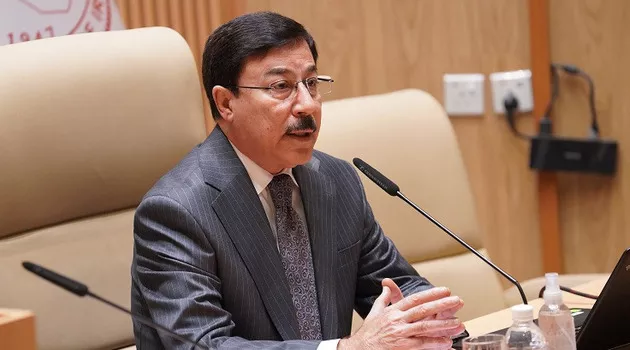Statement from the Central Bank of Iraq (CBI):
The Central Bank of Iraq, headed by Mr. Ali Mohsen Al-Alaq, has announced a significant plan to halt external transfers in the next year and instead rely on correspondent banks for international transactions. Presently, 60% of transfers (excluding those on the central bank’s electronic platform) are processed through correspondent banks, with an impressive success rate of over 95%.
During a meeting with leaders and managing directors of accredited banks in Iraq, Mr. Al-Alaq reiterated the Iraq Central Bank’s commitment to establishing direct communication channels between Iraqi banks and their foreign counterparts for correspondent banking, trade, and other financial operations. This decision was made based on an agreement reached between Iraq’s Central Bank and the US Federal Reserve, aligning with the standard global practice of central banks focusing on oversight rather than executing financial transactions. The move allows Iraqi banks to conduct transactions in multiple currencies, including the UAE Dirham, Turkish Lira, Indian Rupee, and Euro.
It has been reported that starting next year, all domestic and non-travel-related trade transactions in Iraq will be transitioned to the Iraqi Dinar, except for those meant for travelers. This move is expected to reduce inflation, thanks to the significant participation of most traders in official transfer channels. These traders are able to acquire dollars at a rate of 1,320 dinars, which directly contributes to price control. The reduction in inflation is a crucial indicator of the effectiveness of monetary policy. It is important to note that the black market exchange rate, which is linked to cash dollar transactions for non-legitimate purposes, is not a suitable benchmark for legitimate trade.
Mr. Al-Alaq emphasized that the new system for external transfers and dollar sales provides risk protection for all parties involved. This system has been internationally recognized and complies with anti-money laundering and counter-terrorism financing regulations. It fosters vital direct relationships between Iraqi banks and globally accredited financial institutions.
During the meeting, the discussions mainly focused on the establishment of a “Leading Bank” and its significance in society, in line with the directives and vision of the respected Prime Minister. The banks are expected to contribute to the creation of this institution, which will serve as a gateway for individuals who wish to start small-scale production and commercial projects. This initiative is anticipated to have a direct impact on local economic development and reduce unemployment, with the Central Bank providing direct support.





